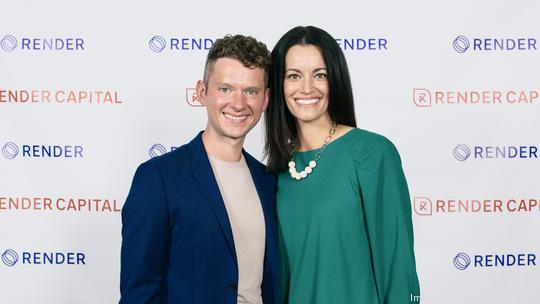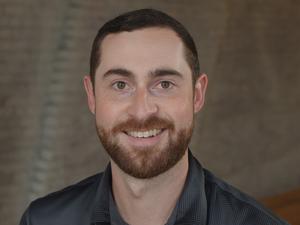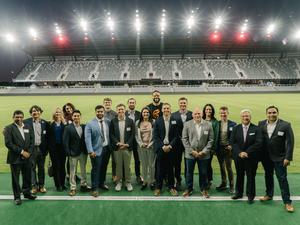
As a board certified music therapist, Michael Detmer knows the impact music can have on infant development.
He moved to Louisville in 2015 for a unique opportunity to split his time between academic research at University of Louisville and working in the neonatal intensive care unit at Norton Women's and Children's Hospital. That's where Detmer studied the longterm developmental outcomes of music intervention in premature babies, finding the infants that got the early therapy were statistically more developed than those that didn't.
It's also where he met Rebekah Gossom, a speech-language pathologist that specializes in pediatric feeding. About 60% of U.S. infants struggle with feeding each year, facing issues such as not finishing bottles and oral aversion. Recognizing those issues in the NICU, Gossom and Detmer began brainstorming music-enabled solutions.
"There isn't anything that solves the bottle problem," Detmer said.
"It's people like Rebekah that are doing environmental trial and error, like talking with parents and nurses to change the temperature of the bottle, the thickness of the milk or the feeding position.
"We knew music was much more effective at changing infant behavior and improving their development. Even a premature baby, with no experience with music, will turn their head in the crib to look at and focus on the person singing to them."
That evidence-based research led Detmer and Gossom to the concept for LullaFeed, an integrated biofeedback device using music reinforcement to encourage infants to drink from the bottle. It's the first product from their startup Innovative Therapeutix, which they co-founded in 2017.
While LullaFeed's function is relatively simple — a baby bottle that plays music if and only when the infant is sucking — the strategy behind its patent-pending technology is fairly complex. The co-founders had to do feasibility tests for the hardware to figure out the best place to put the tech, namely the sensor that detects if the infant is sucking, to collect the most accurate and consistent data to track the baby's feeding progress.
Its development was initially funded through UofL via ExCITE, a National Institute of Health-backed grant program. But Innovative Therapeutix's first institutional investor was the venture arm of Kentucky Science and Technology Corp. (KSTC) in August 2018.
KSTC offered up matching funds, meaning for every $25,000 Detmer and Gossom were able to secure, it would match it. In addition to KSTC, Innovative Therapeutix's first few investors included Gil Holland, Lincoln Trail Venture Group and Richard Hundley.
"When we met them initially, we thought the LullaFeed team was making good progress in developing their concept, and we’re hoping our early support will continue to help them accelerate their innovation," said Kelby Price, executive director of venture finance at KSTC. "Kentucky must support pre-seed and seed-stage companies to build a competitive ecosystem and platform for rapid prototyping and exploring early product-market fit. We think supporting early-stage companies like LullaFeed is critical to aid in their commercialization of research and development and the application of new technologies."
Thanks to those KSTC matching funds, Innovative Therapeutix just secured $200,000 after its Render Capital competition win last month. Render Capital invested $800,000 into Innovative Therapeutix and seven other early-stage startups, each receiving $100,000.
Marigrace Ragsdale, senior associate at Render Capital, said the firm wants to invest in the best startups in the region.
"Innovative Therapeutix stood out to our Render Competition judges over multiple rounds of review not only because of a strong product in LullaFeed, but also because they have the right team with the right experience to execute," she said. "Couple that with a significant support network in Louisville for healthcare and manufacturing and you have a winning combination."
Detmer said there are still matching funds available, and the company is looking to take advantage of those capital resources as it engineers the consumer device and tests it before taking it to market.
"We will use these dollars to hire a business development and sales individual to help us with that go-to-market strategy," he said. "By the time the intellectual property, the revisions to the hardware, software and regulatory path is done, we can hit the market with a plan to get this out in people's hands."









